|
|
|||||
"We’re not going to take it." That’s the Nigerian protestors’ message to their government. We look at what’s happening and why it matters. |
|||||
|
|
|||||
A clear messageThousands of my fellow countrymen and women recently took to the streets to voice their frustration. The protests were not just a response to current economic hardships. They were born out of long-simmering frustration with decades of poor governance. The protestors were fighting for a better future, one in which young people – who account for 63% of Nigeria's 230 million people – have a fighting chance. The message from the streets was clear: Nigerians need relief, and they need it now. Protestors’ calls for change are not about rejecting leadership but about urging the government to address the pressing issues that affect their everyday lives. All Nigerians dream of a better Nigeria. It will take collective effort to make that dream a reality. – Iyinoluwa Ajayi, Contributor from Lagos, Nigeria 3 things to know1. Living costs have skyrocketed in Nigeria. Annual inflation hit a 28-year high in June. The cost of a litre of petrol jumped from 238 naira (US$0.15) in May 2023 to 750 naira (US$0.47) today. President Bola Ahmed Tinubu’s controversial decision to end the country’s longtime fuel subsidy was intended to improve the economy. Instead, it led to a sharp increase in fuel prices, which have helped drive up the cost of living. So too has food inflation: The cost of many staple foods tripled in the past year. The price of rice ballooned from 30,000 to 85,000 naira (US$18.87 to US$53.46) per bag. Nigeria's soaring food prices  Source: ONE, Nigerian National Bureau of Statistics Why it matters: Nearly two-thirds of Nigeria’s population is “multidimensionally poor” on an index that considers income alongside other measures, including education, health care, and housing. Nigerians are known for their resilience, but even the most resilient people can only take so much. The country faces an escalating economic crisis that has pushed many people to the brink. Rising food and fuel prices – coupled with a lack of decent jobs and currency devaluation – have made daily life a struggle for millions. 2. Bad governance is a feature, not a bug. Former Nigerian Minister of Education Obiageli Ezekwesili once estimated that Nigeria lost more than US$400 billion to “oil thieves” in the 50 years following the country’s independence. A long list of former high-ranking government officials stand accused of stealing billions of dollars of public money. Some of them seem to fail up: Abubakar Atiku Bagudu, a former state governor, was the subject of an international investigation that led him to return US$160 million of stolen money. Last August, President Tinibu unironically (we presume) made him Nigeria’s Minister of Budget and Economic Planning. ¯\_(ツ)_/¯  Source: ONE Why it matters: More than 90% of Nigerians surveyed think that elected officials and civil servants are involved in corruption. Less than 10% believe that ordinary people can report corruption without fear of retribution. Perhaps unsurprisingly, Nigerians’ trust in institutions and satisfaction with democracy are both declining. Africa’s most populous country and largest economy has incredible potential. If only its leaders could help – rather than hinder – Nigerians’ efforts to realise it. 3. Nigerians fight back. Tens of thousands of protestors took to the streets for several days this month in what has been labelled the “End Bad Governance” and “End Hungers” protests. They blamed Tinibu’s rapid-fire policy changes, including the removal of government fuel and electricity subsidies, for making their lives harder. At least 22 people were killed and hundreds arrested during the protests. Why it matters: More than 8 in 10 Nigerians say the country’s economy is in bad shape. Many Nigerians barely earn enough to cover their basic needs, and more than 9 in 10 are employed in the informal sector. Which means that citizen frustration isn’t going away. But the impact of the protests is unclear, not least of all because they lacked a coherent and practical set of demands. And unlike the spontaneous #EndSars protests against police brutality in 2020, protestors gave the government weeks of advance notice. That allowed the government to marginalise the protests before they started and diminish their disruptive power. From the ONE Team
The numbers
 |
|||||
|
|
|||||
Quote of the week
|
|||||
|
|
|||||
What you should read, watch, and listen to:
|
|||||
|
|
|||||
A look ahead19 August: World Humanitarian Day 20 August: World Mosquito Day |
|||||
|
|
|||||
The ONE Campaign’s data.one.org provides cutting edge data and analysis on the economic, political, and social changes impacting Africa. Check it out HERE. |
|||||
|
|
|||||
|
|
|||||
Did you like today's email?Loved it Mehhh Hated it |
|||||
|
|
|||||
Did you like today's email?Loved it Mehhh Hated it |
|||||
|
|
|||||
Wie hat dir dieser Newsletter gefallen?Richtig gut! Ging so… Überhaupt nicht. |
|||||
|
|
|||||
|
|||||
|
|||||
|
|||||
|
This email was sent by ONE.ORG to test@example.com. You can unsubscribe at any time. ONE Campaign |
